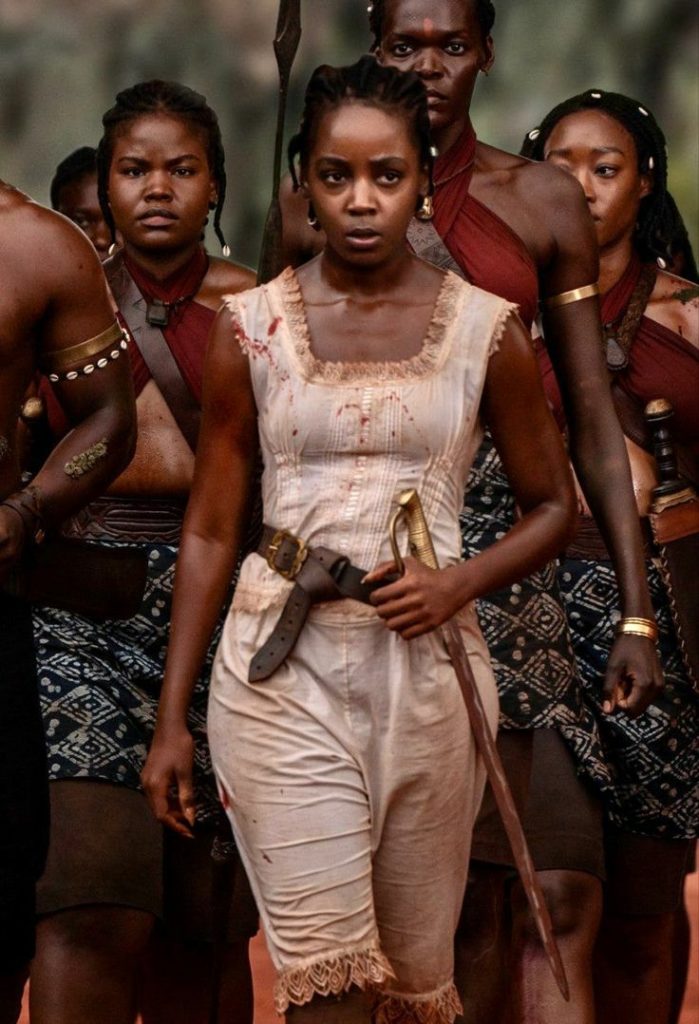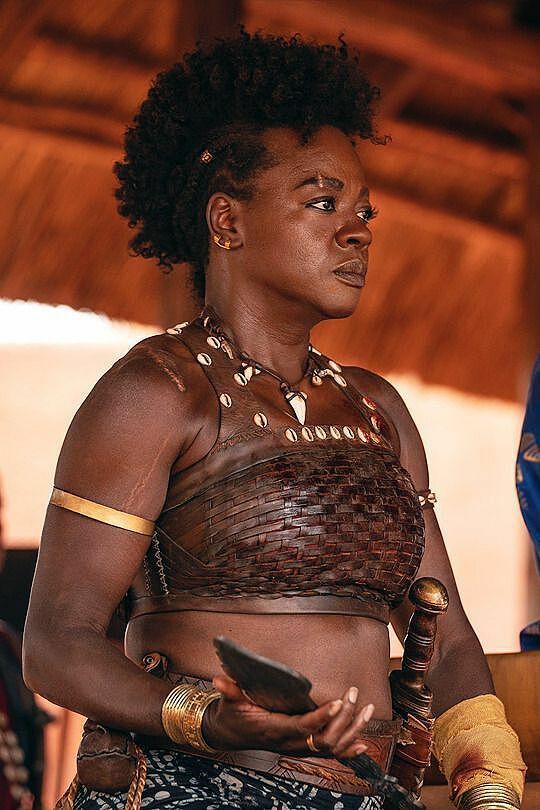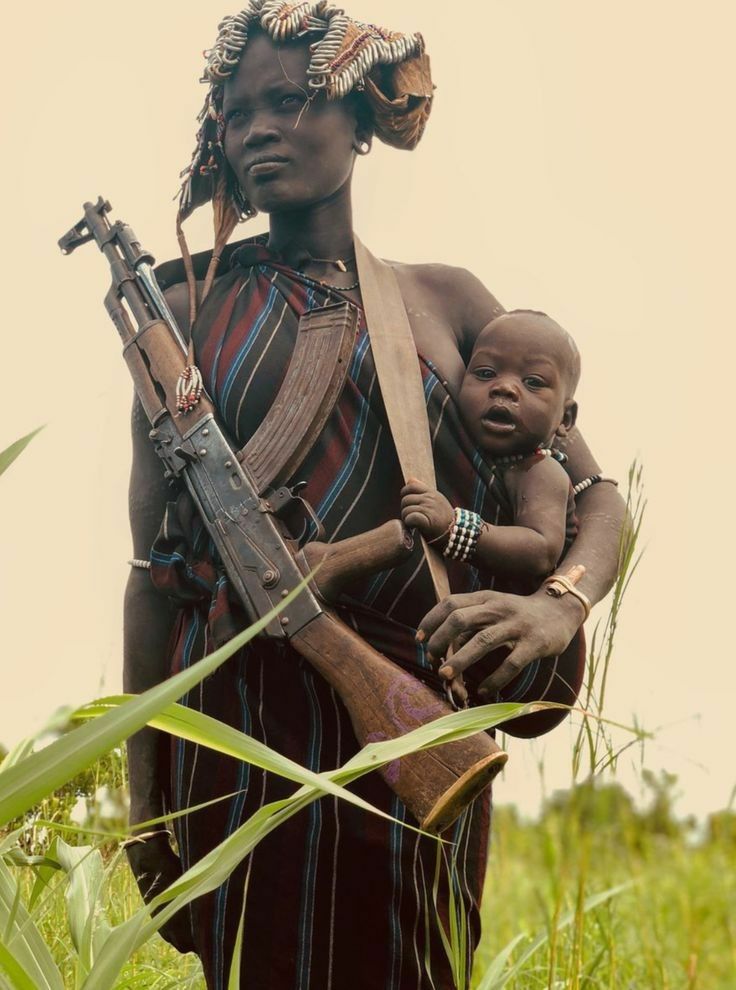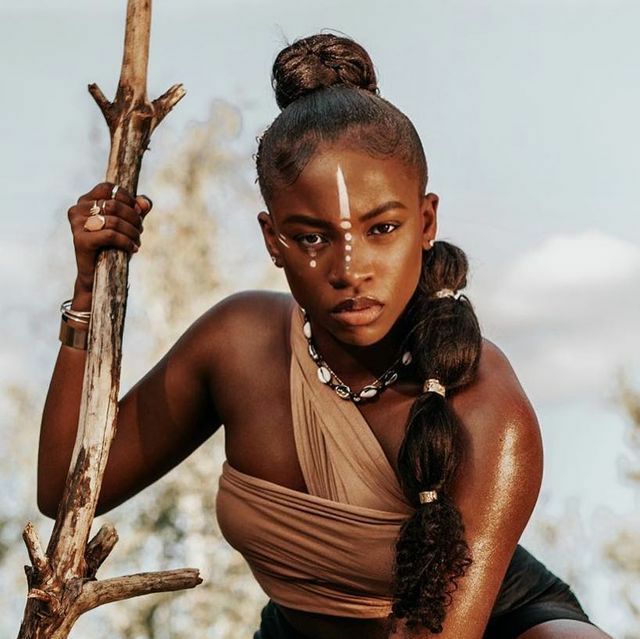“The Woman King” – When Women’s Strength Is Not Born Only From Pain
The film takes place in the 1820s, when Dahomey is one of the most powerful nations in Africa, but at the same time facing the threat of invasion and the growing penetration of the slave trade. The Agojie army – made up entirely of highly trained women – becomes the kingdom’s main line of defense.
Nanisca, a strong and wise general, fights not only with swords but also with intelligence, as she tries to convince King Ghezo (played by John Boyega) to change course, reduce dependence on the slave trade and move towards a more autonomous and humane future.
The Woman King
A key highlight of the film is the story of Nawi – a rebellious but courageous young woman (played by Thuso Mbedu) who finds family, strength and ideals in the Agojie army.
In The Woman King, Nanisca is more than just a legendary warrior – she is a living symbol of resilience, wisdom, and kindness in a dangerous and unjust world. Played by Viola Davis, Nanisca is fierce, with a piercing gaze, but always harbors a deep wound from the past. Those wounds do not weaken her, but on the contrary, create a person full of courage – a teacher, a mother, and a spiritual guide for a new generation of warriors.

Nanisca does not fight just to win – she fights to protect the belief that women can also be the ones to write history. She always demands absolute discipline and loyalty, but is the only one who understands and appreciates the pain and personal choices of each warrior under her command.
In her relationship with Nawi, a young rebel warrior, Nanisca gradually reveals her softest side – not a weakness, but a testament to her kindness and depth of soul. Every word of advice, every look she gives Nawi is filled with love – a love that is silent but fierce, like a mother protecting her lost daughter.

Nanisca is also the pioneer character who poses the film’s biggest moral question: Does true power lie in the sword or in the courage to abandon a wrong that has been maintained for centuries? She is not afraid to face the king, challenge the old order, and fight for a better future – even if the price is blood and betrayal.
“The Woman King” received widespread praise from critics and audiences. The film was nominated for numerous awards, notably at the Critics’ Choice Awards and the NAACP Image Awards, and received high scores on sites like Rotten Tomatoes and Metacritic.
Hypothesis: A world without war and human trafficking
In an ideal world, where there is no violence, no oppression, no war, and no human trafficking, women certainly would not need to be tough to survive. They would not need to hold swords to defend themselves, would not need to sacrifice their youth to become warriors, would not need to struggle to win the right to exist and be respected like men.
However…

Strength does not come only from pain
Even without events like war or slavery, women still need to be strong – but it would be a different kind of strength:
Strong to be themselves.
In any era, women always have to overcome invisible limits set by tradition, prejudice, and social stereotypes. Even in peace, strength helps them live true to their inner voice and their own aspirations.
Strength to create.
When not fighting to survive, women can use their strength to build communities, educate, nurture, lead, and change society. It is a form of quiet but enduring strength – like a mother, a teacher, a keeper of the fire in every home.

Strength to love.
A woman’s strength lies not only on the battlefield – but also in her heart that can love, forgive, protect, and heal. That strength helps them preserve human values even when the world is full of turmoil.
If the world had no suffering, women might not need to fight, but they would still need to be strong to live freely, dream freely, and choose their own destiny.
Like General Nanisca in The Woman King – although she was born in a time of war, her strength lies not only in her weapons, but also in her unyielding heart and her intelligence that always aims for what is right.



